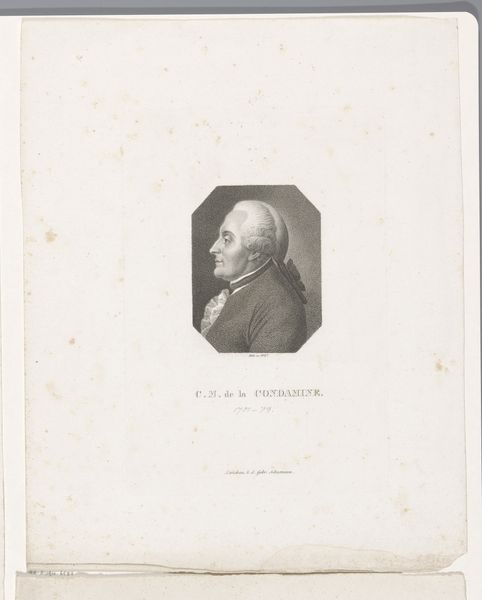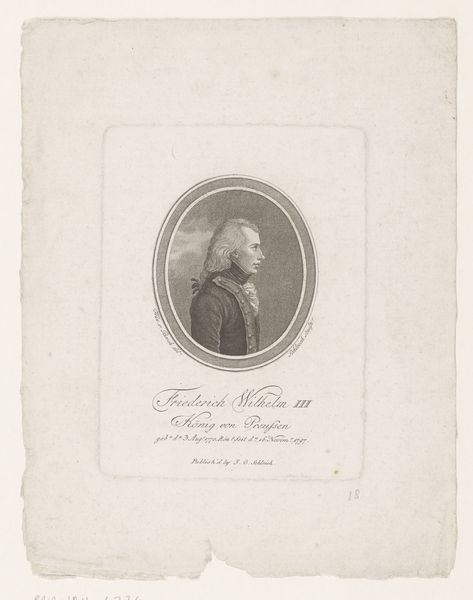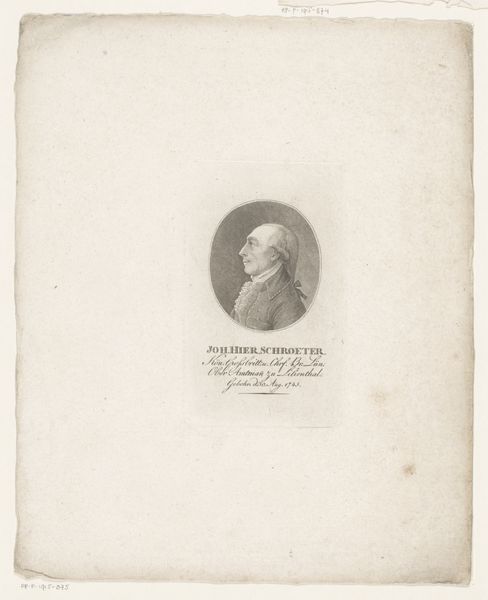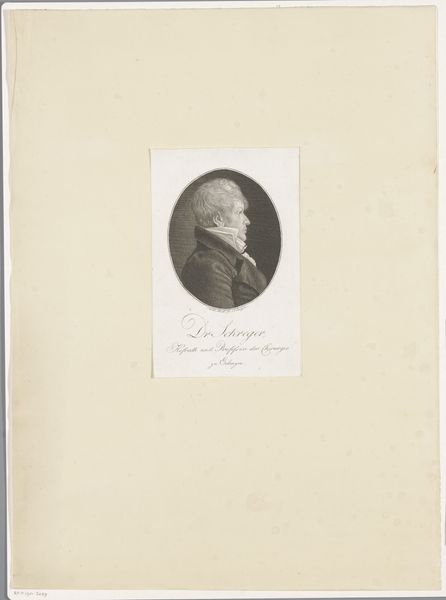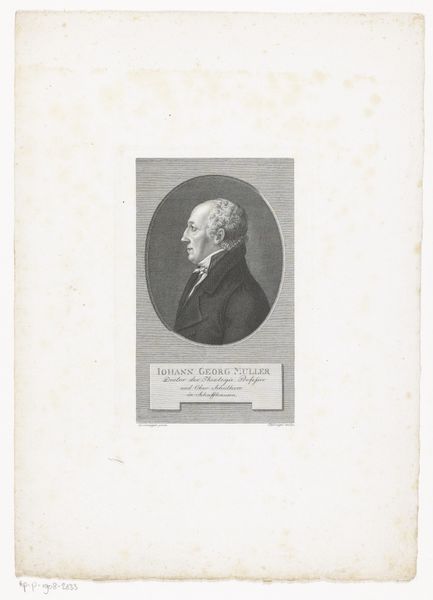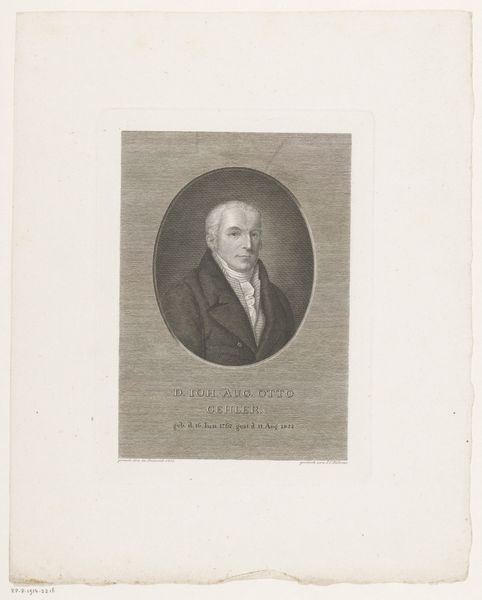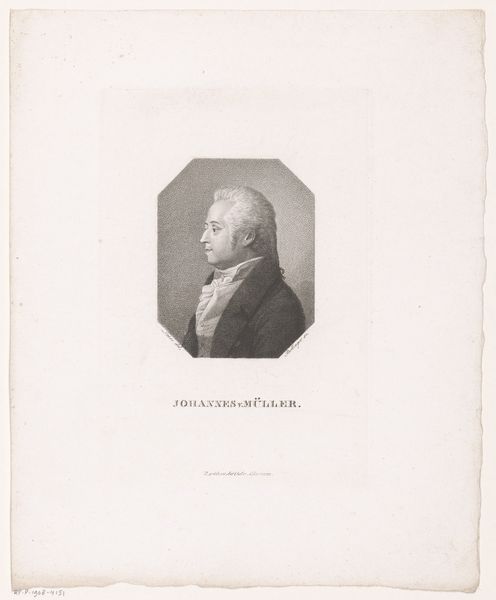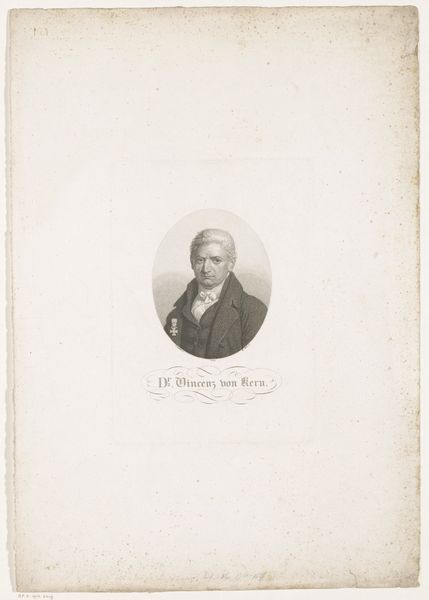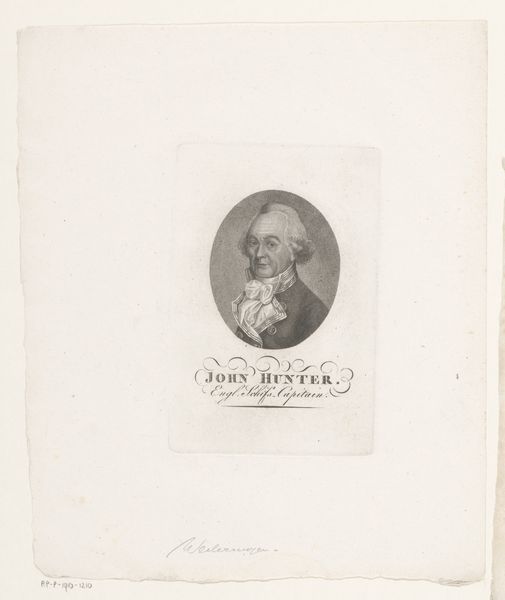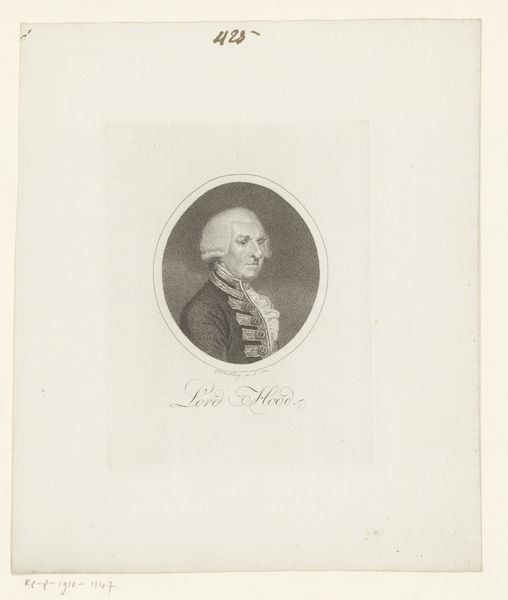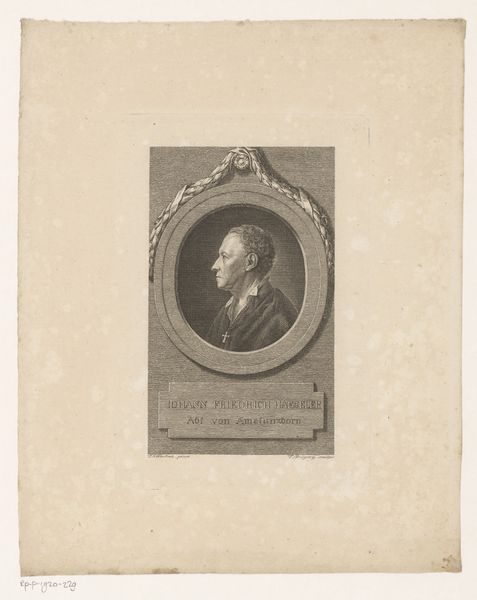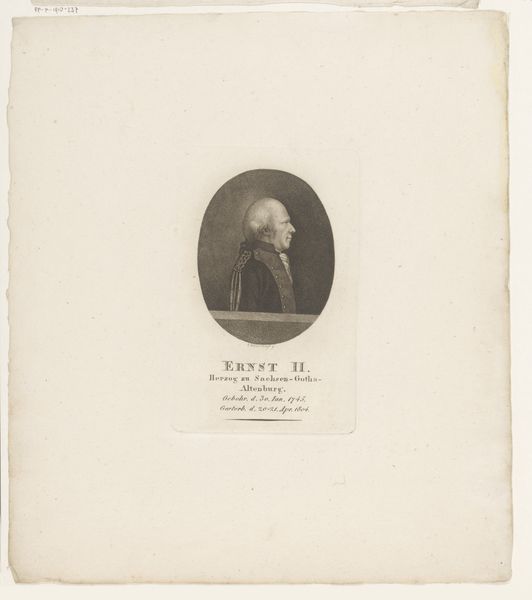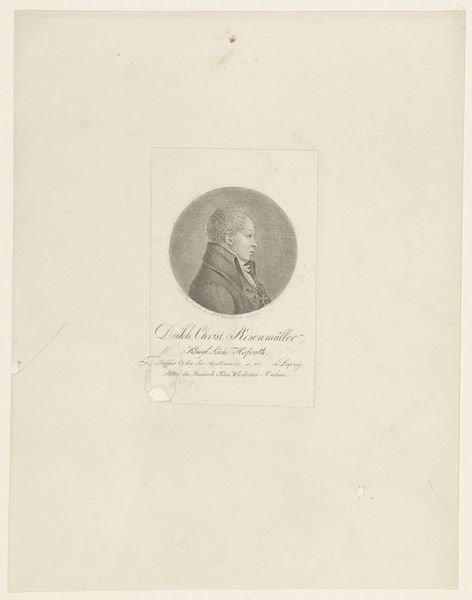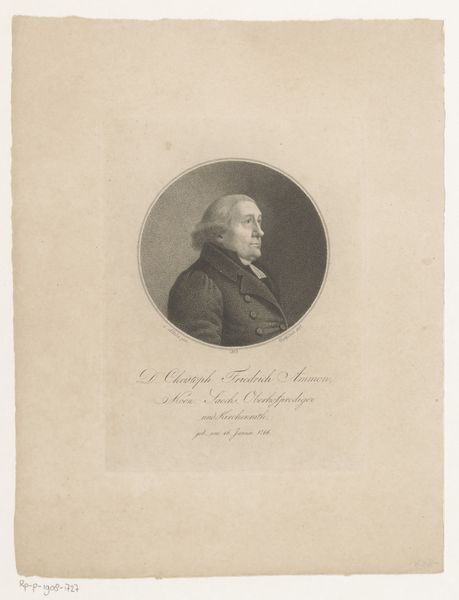
#
pencil drawn
#
photo of handprinted image
#
aged paper
#
light pencil work
#
photo restoration
#
ink paper printed
#
light coloured
#
old engraving style
#
white palette
#
ink colored
Dimensions: height 134 mm, width 87 mm
Copyright: Rijks Museum: Open Domain
Konrad Westermayr's portrait of Christian Felix Weisse is an etching that captures the subject in profile, set against a stark oval backdrop. The contrasting tones delineate Weisse's features, from the powdered wig to the subtle contours of his face, all rendered with precise linearity. The formal structure of the portrait—the tight, contained oval shape—speaks to the Enlightenment's emphasis on order and reason. The clean lines and unembellished background distill the essence of the subject. This semiotic reduction is typical of Enlightenment portraiture, aiming to convey the intellectual or moral character of the sitter through controlled visual means. The etching's graphic simplicity is not merely aesthetic; it's an intellectual statement. Westermayr employs a visual language that values clarity and rationality, mirroring the philosophical underpinnings of the period. In this way, the artwork serves as a sign, embodying the Enlightenment's commitment to representing the world through reason and empirical observation.
Comments
No comments
Be the first to comment and join the conversation on the ultimate creative platform.
